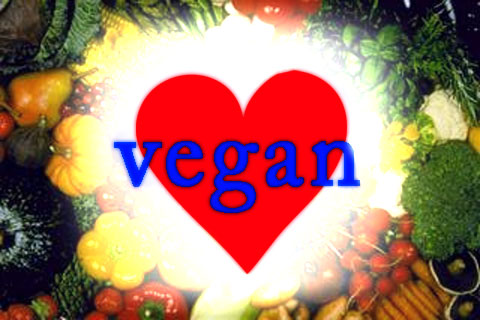2006 03 16
By Marianne Harris | auburnjournal.com

So, you want to lose weight. You want to live healthier. You want fewer visits to the doctor. Normal blood pressure and cholesterol levels. Clear, unclogged arteries. Pain-free days and nights. A good night's sleep - good digestion - a sharp memory with good concentration. Sexual vitality. Well, stop looking in the pharmacy section. Start looking in your own kitchen. The answer is simple. Veganism. Check it out.
Veganism is a lifestyle free of animal products or by-products - a plant-based diet - which advocates health and compassion.
The first question that comes to mind is "how do you get enough protein?" Let's take a look at this protein issue. Joel Fuhrman, M.D., in his book "Eat to Live," states that an easy way to calculate your own daily protein requirement according to the U.S. RDA is to multiply 0.36 (grams) by your body weight. This translates to about 44 grams for a 120-pound woman and 54 grams for a 150-pound male.
Too much protein is a more common problem. The average person in America consumes foods containing 100 to 120 grams of mostly animal-derived protein daily. This puts a great deal of stress on the kidneys.
Plant-based diets include protein from a wide variety of whole foods consisting of beans, whole-grains, fruits, vegetables, nuts, and seeds, along with products made from these natural foods, such as tofu, tempeh, and meat substitutes. Those who believe plant protein is inferior to animal protein may be surprised to learn that plant proteins contain the same 23 amino acids as animal proteins. It is unlikely that a vegan would be protein deficient.
Let's consider our country's health issues. The three leading causes of death in the United States are heart disease, cancer and stroke. Diet and nutrition are a common denominator of these diseases. In "Diet For A New America," John Robbins states
"Researchers compared other nations that cannot afford the rich animal diets. The findings were that the United States and Finland had the highest consumption of animal products, the highest consumption of saturated fats and cholesterol - and the highest death rate from heart disease."
Heart disease is common in societies where much meat is consumed, such as the U.S., Canada, western Europe and Australia, but practically unheard of in societies where meat consumption is low.
Atherosclerosis is a disease that kills almost as many human beings in the industrialized world as all other causes of death combined. The fats of animal flesh, known as saturated fats, do not break down well in the human body, and instead begin to line the walls of the blood vessels. Eventually the blood vessels get more and more constricted. This places a tremendous burden on the heart which has to pump harder to send the blood through the clogged arteries.
Roughage and fiber of a plant-based diet actually helps lower the level of cholesterol. Meat, dairy and eggs are the chief sources of saturated fats and have no fiber. The only plant foods containing saturated fats are coconuts, palm kernel oil and chocolate. The average vegan cholesterol level is about 133, while the average vegetarian cholesterol level is 161. And the average meat-eater's cholesterol level is 210. The recommended cholesterol level is 160.
Cancer is the second killer in our nation. Just to be clear, it's not fat and cholesterol that contributes to cancer; it's animal protein. Fat and cholesterol contributes to heart disease.
Approximately 55,000 people die of colon cancer in the United States each year. The human intestine has a very hard time handling the putrefying bacteria, high levels of fat, and lack of fiber in meat, dairy and eggs products.
Do you have to give up a lot to live a healthy, vegan lifestyle? Just ask any vegan - the answer is no. Choosing a plant-based diet means effectively lowering the risks of a diseased life. Your life matters: it matters how you treat others, how you treat animals, how you treat yourself. Most of all - if you are what you eat - it matters what you eat.
Article from: http://www.auburnjournal.com/articles/
2006/03/09/news/lifestyle/02vegan.txt
Related: Organic and vegan eating spawn good health, sustainable environment
The joy of being vegan
Milk & Dairy
